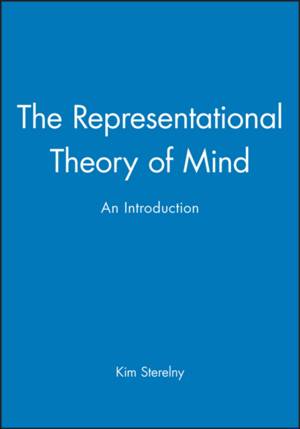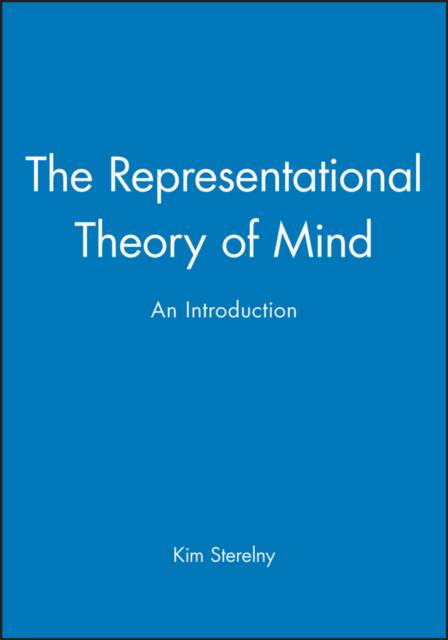
- Afhalen na 1 uur in een winkel met voorraad
- Gratis thuislevering in België vanaf € 30
- Ruim aanbod met 7 miljoen producten
- Afhalen na 1 uur in een winkel met voorraad
- Gratis thuislevering in België vanaf € 30
- Ruim aanbod met 7 miljoen producten
Zoeken
€ 83,45
+ 166 punten
Omschrijving
This book is not a conventional introduction to the philosophy of mind, nor is it a contribution to the physicalist/ dualist debate. Instead The Representational Theory of Mind demonstrates that we can construct physicalist theories of important aspects of our mental life. Its aim is to explain and defend a physicalist theory of intelligence in two parts: the first six chapters consist of an exposition, elaboration and defence of human sentience (the functionalist theory of mind), and the second part considers rivals and objections to this theory.
Kim Sterelny aims to introduce people to this area of philosophy be exemplifying it, to show that philosophical and empirical investigations can be synthesized to the benefit of both. It is both introduction and argument, explanation and manifesto and succeeds in bridging the widening gap between student primer and contemporary research. Technical vocabulary is explained (and defined in a glossary) while the leading edge of current debates is confronted and assessed. This book has been written for people working in philosophy, psychology and the cognitive sciences.
Kim Sterelny aims to introduce people to this area of philosophy be exemplifying it, to show that philosophical and empirical investigations can be synthesized to the benefit of both. It is both introduction and argument, explanation and manifesto and succeeds in bridging the widening gap between student primer and contemporary research. Technical vocabulary is explained (and defined in a glossary) while the leading edge of current debates is confronted and assessed. This book has been written for people working in philosophy, psychology and the cognitive sciences.
Specificaties
Betrokkenen
- Auteur(s):
- Uitgeverij:
Inhoud
- Aantal bladzijden:
- 268
- Taal:
- Engels
Eigenschappen
- Productcode (EAN):
- 9780631164982
- Verschijningsdatum:
- 8/01/1991
- Uitvoering:
- Paperback
- Formaat:
- Trade paperback (VS)
- Afmetingen:
- 154 mm x 228 mm
- Gewicht:
- 394 g

Alleen bij Standaard Boekhandel
+ 166 punten op je klantenkaart van Standaard Boekhandel
Beoordelingen
We publiceren alleen reviews die voldoen aan de voorwaarden voor reviews. Bekijk onze voorwaarden voor reviews.











